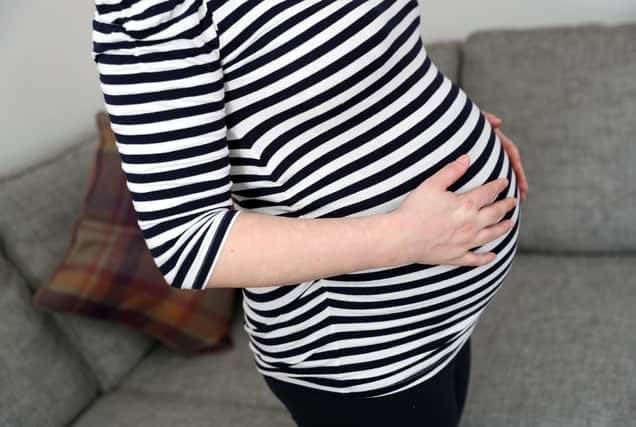Baby Loss Awareness Week: Please back my Bill to give parents at least three days off work if they suffer a miscarriage before 24 weeks – Angela Crawley MP


Tragically, one in four pregnancies will end in miscarriage and I have received tonnes of correspondence on this issue from fathers, mothers and families who have experienced miscarriage.
They have outlined that, in most cases, there was a degree of stigma or shame to experiencing a miscarriage.
Advertisement
Hide AdAdvertisement
Hide AdEvery pregnancy loss is different and there is no right or wrong way to feel about it.
Currently, bereavement legislation entitles parents who lose a baby after 24 weeks to two weeks of paid bereavement leave.
However, for parents who lose a baby before 24 weeks, there is currently no provision in place.
That means many are forced to have to ask for paid leave or sick leave – and it may not always be granted. This is so unfair. And some may not even ask because of the stigma attached.
I recently spoke about this in the House of Commons during a debate about Baby Loss Awareness Week.
Grief is not an illness. It is a process that parents go through and there is simply no timeline for grief. Everybody processes grief differently.
Every parent, regardless of whether it is before or after 24 weeks, should be given the time to grieve their loss, without a financial penalty.
That is why I have introduced a Private Members' Bill which would allow parents who experience a miscarriage, before 24 weeks, to seek a minimum of three days’ paid leave.
Advertisement
Hide AdAdvertisement
Hide AdSome companies have already gone further and offer paid leave for between seven and 14 days for people who experience a miscarriage at any stage of the pregnancy – and I hope many more employers will replicate that.
Introducing paid leave for employees who experience a miscarriage, whether in policy or statute, would rightly recognise the loss and grief that comes with a miscarriage, and encourage parents to approach their employer to seek paid leave.
Other countries, including New Zealand, have written similar provisions into law, challenging the stigma associated with miscarriage and setting an example for the rest of the world.
At the start of September, Australia became the latest country to adopt paid miscarriage leave. Women and their partners are now entitled to two days of paid leave if they experience a miscarriage.
Over the past few weeks and months, I have been speaking with MPs from all parties to seek support for my Bill and I am pleased to say it has been successful.
I have already sent a cross-party letter with support from every political party – excluding the Tories – and I’m hopeful that more will back the campaign in the coming weeks.
Many parents have spoken of feeling isolated, alone and without the opportunity to share that loss with colleagues for fear of the shame and stigma that has been associated with such a loss.
Introducing three days of paid leave for those who experience miscarriage, would not only give parents a chance to grieve and process their loss, but would help to break the stigma that surrounds it.
Advertisement
Hide AdAdvertisement
Hide AdPlease write to your local MP to ask them to support my Bill. If enough people do this, we can get real momentum behind it and give the people who experience the loss of a baby at any stage of pregnancy the time they deserve.
Angela Crawley is the SNP MP for Lanark & Hamilton East
A message from the Editor:
Thank you for reading this article. We're more reliant on your support than ever as the shift in consumer habits brought about by coronavirus impacts our advertisers.
If you haven't already, please consider supporting our trusted, fact-checked journalism by taking out a digital subscription.
Comments
Want to join the conversation? Please or to comment on this article.
